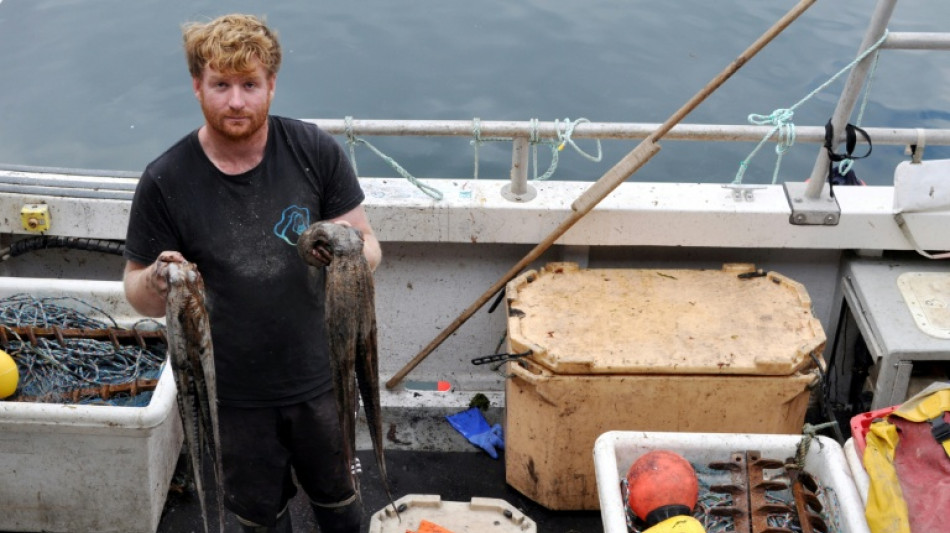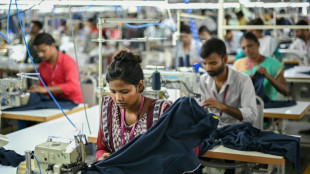
-
 NHL players will compete at Olympics, says international ice hockey chief
NHL players will compete at Olympics, says international ice hockey chief
-
Kohli surpasses Sangakkara as second-highest scorer in international cricket

-
 Young mother seeks five relatives in Venezuela jail
Young mother seeks five relatives in Venezuela jail
-
Arsenal villain Martinelli turns FA Cup hat-trick hero

-
 Syrians in Kurdish area of Aleppo pick up pieces after clashes
Syrians in Kurdish area of Aleppo pick up pieces after clashes
-
Kohli hits 93 as India edge New Zealand in ODI opener

-
 Trump tells Cuba to 'make a deal, before it is too late'
Trump tells Cuba to 'make a deal, before it is too late'
-
Toulon win Munster thriller as Quins progress in Champions Cup

-
 NHL players will complete at Olympics, says international ice hockey chief
NHL players will complete at Olympics, says international ice hockey chief
-
Leeds rally to avoid FA Cup shock at Derby

-
 Rassat sweeps to slalom victory to take World cup lead
Rassat sweeps to slalom victory to take World cup lead
-
Liverpool's Bradley out for the season with 'significant' knee injury

-
 Syria govt forces take control of Aleppo's Kurdish neighbourhoods
Syria govt forces take control of Aleppo's Kurdish neighbourhoods
-
Comeback kid Hurkacz inspires Poland to first United Cup title

-
 Kyiv shivers without heat, but battles on
Kyiv shivers without heat, but battles on
-
Salah and fellow stars aim to deny Morocco as AFCON reaches semi-final stage

-
 Mitchell lifts New Zealand to 300-8 in ODI opener against India
Mitchell lifts New Zealand to 300-8 in ODI opener against India
-
Iran protest death toll rises as alarm grows over crackdown 'massacre'

-
 Malaysia suspends access to Musk's Grok AI: regulator
Malaysia suspends access to Musk's Grok AI: regulator
-
Venezuelans await release of more political prisoners, Maduro 'doing well'

-
 Kunlavut seals Malaysia Open title after injured Shi retires
Kunlavut seals Malaysia Open title after injured Shi retires
-
Medvedev warms up in style for Australian Open with Brisbane win

-
 Bublik powers into top 10 ahead of Australian Open after Hong Kong win
Bublik powers into top 10 ahead of Australian Open after Hong Kong win
-
Sabalenka fires Australian Open warning with Brisbane domination

-
 In Gaza hospital, patients cling to MSF as Israel orders it out
In Gaza hospital, patients cling to MSF as Israel orders it out
-
New protests hit Iran as alarm grows over crackdown 'massacre'

-
 Svitolina powers to Auckland title in Australian Open warm-up
Svitolina powers to Auckland title in Australian Open warm-up
-
Keys draws on happy Adelaide memories before Australian Open defence

-
 Scores of homes razed, one dead in Australian bushfires
Scores of homes razed, one dead in Australian bushfires
-
Ugandan opposition turns national flag into protest symbol

-
 Bears banish Packers, Rams survive Panthers playoff scare
Bears banish Packers, Rams survive Panthers playoff scare
-
'Quad God' Malinin warms up for Olympics with US skating crown

-
 India eyes new markets with US trade deal limbo
India eyes new markets with US trade deal limbo
-
Syria's Kurdish fighters agree to leave Aleppo after deadly clashes

-
 New York's Chrysler Building, an art deco jewel, seeks new owner
New York's Chrysler Building, an art deco jewel, seeks new owner
-
AI toys look for bright side after troubled start

-
 AI pendants back in vogue at tech show after early setback
AI pendants back in vogue at tech show after early setback
-
Grateful Dead co-founder and guitarist Bob Weir dies aged 78

-
 Myanmar votes in second phase of junta-run election
Myanmar votes in second phase of junta-run election
-
'One Battle After Another' heads into Golden Globes as favorite

-
 Rams survive Panthers scare to advance in NFL playoffs
Rams survive Panthers scare to advance in NFL playoffs
-
Rallies across US after woman shot and killed by immigration agent

-
 Egypt dump out holders Ivory Coast as Nigeria set up AFCON semi with Morocco
Egypt dump out holders Ivory Coast as Nigeria set up AFCON semi with Morocco
-
Rosenior salutes 'outstanding' start to Chelsea reign

-
 Maduro loyalists stage modest rally as Venezuelan govt courts US
Maduro loyalists stage modest rally as Venezuelan govt courts US
-
Byrne late penalty fires Leinster into Champions Cup last 16 after 'ding-dong' battle

-
 Rosenior makes flying start as Chelsea rout Charlton in FA Cup
Rosenior makes flying start as Chelsea rout Charlton in FA Cup
-
Rallies across US against shooting of woman by immigration agent

-
 Salah closer to AFCON glory as Egypt dethrone champions Ivory Coast
Salah closer to AFCON glory as Egypt dethrone champions Ivory Coast
-
O'Neil ends 'crazy three days' with Strasbourg cup canter


'Perfect storm': UK fishermen reel from octopus invasion
When veteran fisherman Brian Tapper checked his 1,200 crab pots in waters off southwest England during this year's crabbing season, he got a series of unwelcome surprises.
At first, in March and April, they were almost entirely empty. Then, starting in May, they were unexpectedly packed with octopuses, before sitting largely empty again over the last month or so.
It has been a similar story along the UK's Devon and southern Cornwall coastline where the seas are warming, and an octopus bloom -- the biggest in British waters in 75 years -- has left the shellfish industry reeling.
The tentacled molluscs are notoriously voracious eaters, hoovering up crustaceans such as crab and shellfish.
Tapper's wife has already shuttered her dockside crab processing factory due to the diminished catch, while he doubts he can keep his side of the business afloat.
"It's like a perfect storm for us," Tapper told AFP from Plymouth Harbour, where his three purpose-built crab fishing vessels are idled.
The 53-year-old estimates his catch is down by half, and risks dropping by four-fifths in 2025.
An 18-month marine heatwave in the region and beyond is blamed for causing the bloom in warm water-loving octopus.
Climate scientists say human activity, such as burning fossil fuels, is behind global warming which is driving up ocean temperatures.
"I've been fishing here 39 years and I've never seen octopus like this," Tapper said.
"I've never seen an instant change like this. It's so quick. They're a plague."
- 'Scary' -
Statistics from the Marine Management Organisation, a government agency, show UK fishermen landed more than 1,200 tonnes of octopus in the first six months this year.
That compares to less than 150 tonnes in the same period in 2023, and less than 80 tonnes in those months last year.
Meanwhile, landings of shellfish such as brown crab are down significantly in 2025.
Sue MacKenzie, whose Passionate About Fish firm sources produce from southwest England, said the octopus are "eating our indigenous species at a rate that nobody can anticipate -- it's quite scary".
Decent market prices for octopus helped offset losses, but only until their numbers began dropping considerably in July.
"We're incredibly worried about the impact on shellfish stocks. It's really significant," said Beshlie Pool, executive officer at the South Devon and Channel Shellfishermen cooperative association, which represents more than 50 different vessels.
"Some people have done incredibly well on octopus this year. But across our membership we've got some vessels who haven't caught one octopus this whole season."
Chris Kelly, who fishes "a bit of everything" from his seven-metre vessel "Shadow" using pots, nets and lines, has been among those getting good prices for the unexpected catch.
"But then we're catching no lobsters, and then long-term, you're thinking 'what's it going to do to the stocks?'" he said.
- Octopus on the menu -
The impact has rippled out to restaurants and food retailers, which have adapted by offering octopus instead of shellfish.
"This is the first year we've bought it," said Caroline Bennett, whose Sole of Discretion company supplies direct-to-consumer food firms from Plymouth's dockside.
"We didn't have any crab at all to sell, and are now going a bit further down the coast for it."
Meanwhile, local and national officials have helped commission an urgent study into the situation. An initial report is due in October.
Bryce Stewart, a University of Plymouth marine scientist leading the probe, noted past blooms in Britain -- in 1950, the 1930s and 1899 -- were all preceded by similarly "ideal" warmer-than-usual waters.
However, Stewart suspects octopuses are now breeding in local waters -- an unprecedented situation that could also explain their sudden disappearance.
Both male and female Atlantic longarm octopus -- which typically only live about 18 months -- tend to die not long after breeding.
"They eat everything, they're ferocious, and they start to breed. It's like the ultimate live fast, die young life cycle," he explained.
He said he is constantly asked if the octopuses are here to stay. His answer? "Probably."
Tapper fears as much. "The crab won't come back in my working lifetime," he predicted.
"The reproduction of a crab would probably take five to 10 years to get to its marketable size, and I haven't got five to 10 years (to) pay the bills."
H.Darwish--SF-PST



